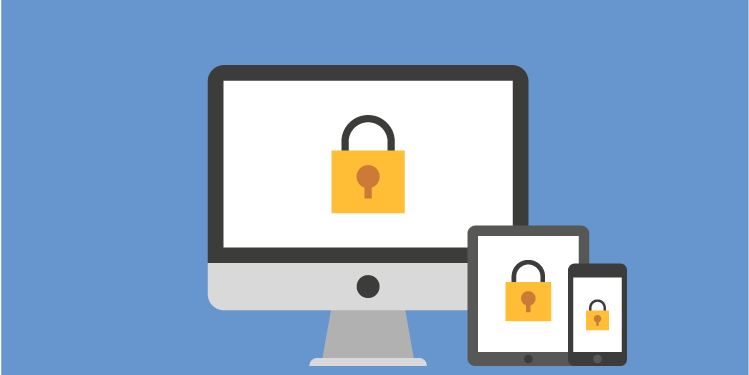It’s the season of gift-giving and many of us will be unwrapping new devices this year. The release of the iPhone 12, Samsung Galaxy S20 Ultra, and Google Pixel 5 have further revolutionized the smartphone game; Dell, Apple, and Microsoft all brought out exciting laptop designs and the innovative Xbox X and PS5 consoles are set to propel gaming to the next level. All of this to say, we will (again) be spending a lot of time looking at screens in 2021.
If you have been gifted (or treated yourself) to a new holiday device, your first thought should be security. In our excitement of unwrapping a new toy, many of us neglect this critical aspect of device setup which can have serious and ongoing repercussions.
Luckily, there are many different types of security software that you can use to protect your new device and private information. Continue reading to discover more about device security and the steps you should take to secure your gadgets.
What Is Device Security?
Device security refers to types of software as well as behaviors that should be practiced to safeguard your mobile, tablet, laptop, or console against security threats. Cybercriminals are constantly looking for ways to take advantage of unsuspecting users and steal private information.
Device security starts the moment you open a new device and continues through the lifetime of the gadget.
Tips To Secure Your New Device
There are many strategies you can employ to immediately secure a new device, from the moment you have opened the box (or even before that!).
Adjust Factory Default Settings
Often the factory default settings on mobiles and tablets are not configured with user privacy in mind. Go through these settings, one by one, and select the option that grants you the highest level of security possible.
This includes:
- Disabling location services on all apps that do not require a GPS to function.
- Restricting all unnecessary apps from accessing your photos.
- Checking which apps can access your microphone and camera.
- Blocking external companies from accessing your analytics data.
Change Default Passwords
Some devices and networks may come pre-set with default passwords. Always change these (which may be as simple as “abc123”) to reduce the risk of cybercriminals hacking into your networks.
Set secure passwords that use a combination of both uppercase and lowercase levels, numbers, and characters and never use the same login information for two devices or accounts.
Use Two-factor Authentication
Two-factor authentication (or 2FA) is another excellent tool that you can utilize to improve your security. 2FA requires multiple pieces of evidence (such as a password and your fingerprint) to log into a device.
The latest phones, tablets, and laptops often come equipped with face-scanning technology and will not unlock for anyone but the designated owner.
Set Up A VPN
A VPN — or virtual private network — is a must-have security tool. Connecting to a VPN encrypts your personal data and safeguards your location from prying eyes.
A VPN can be set up over a router, which will protect all connected devices, or — in the case of phones and tablets — you can download VPN apps. It is recommended that you conduct research before signing up to a VPN service and stay away from free VPN providers, who may sell your information to third parties and slow your connection speed.
Install A Network Firewall
A firewall is a security device that can help protect your network by filtering in-going and out-going traffic, blocking malicious software from infecting your computer. A firewall can be software, hardware, or cloud-based and the type of firewall you might choose to implement will depend on the size of your network and the level of security that you need.
Install Reputable Security Software
Security software is a must for all devices — phones, laptops, tablets, and routers (to protect gaming consoles and all other connected gadgets). The software will alert you should viruses or malware be found on your device and many security companies also offer additional functions for broader internet security purposes including VPN connectivity, dark web monitoring, access to a password manager, and parental control functions.
A new device promises hours of entertainment and fun but in the excitement of holiday gift-giving, don’t forget to consider security software and the many ways you can safeguard your device and privacy.
Author Bio:
Bridget is a writer and editor, currently living in Melbourne. She is a copywriter for Newpath Web and loves working with words of all shapes and sizes. When not playing around with punctuation and grammar, she enjoys traveling and curating her Spotify playlists.
Follow Techdee on social media!





